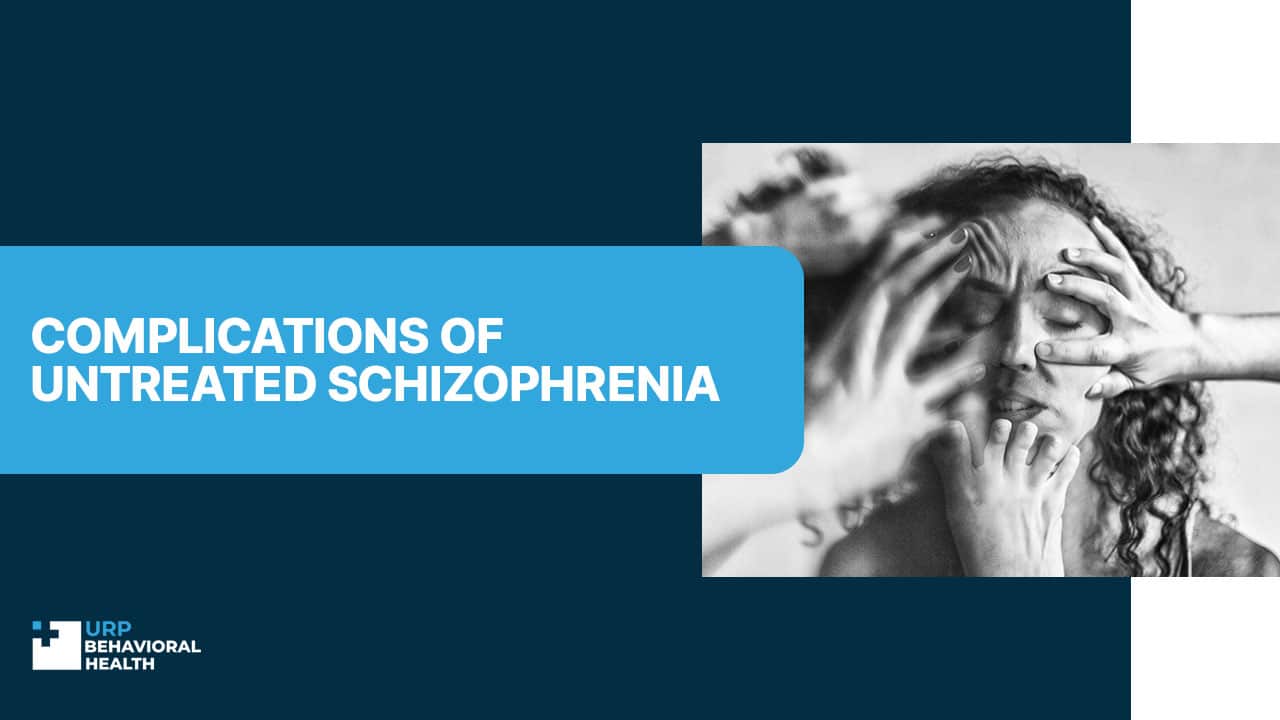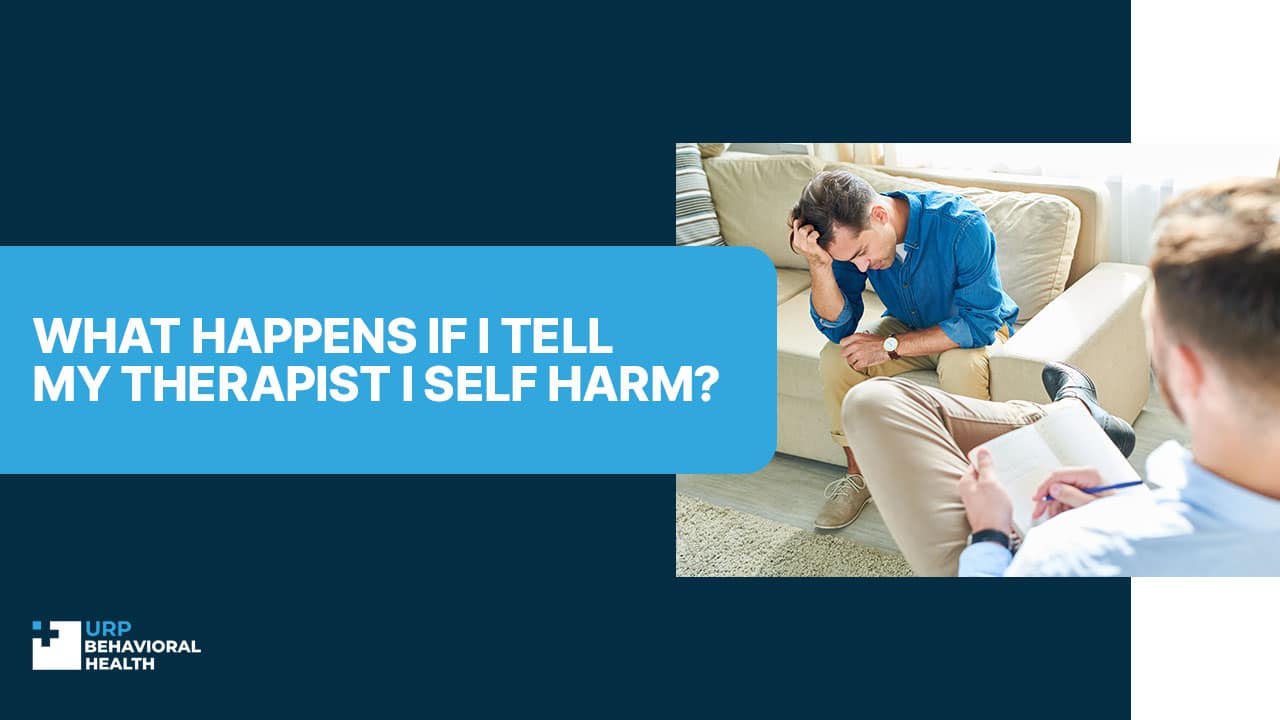
Complications of Untreated Schizophrenia
Untreated schizophrenia can give rise to various physical, mental, and social challenges. However, many people don’t seek treatment because this lifelong condition is associated with many misconceptions. We’ll explain what happens if schizophrenia is left untreated and why it’s vital to overcome hurdles to treatment to lessen the hazardous impact of schizophrenia on overall well-being.
Understanding Schizophrenia
Understanding schizophrenia is essential to reduce negative symptoms, improve the quality of life and daily functioning, and avert potential complications of schizophrenia.
What is schizophrenia?
Schizophrenia is a lifelong psychiatric condition that commonly features an atypical mental viewpoint toward reality [1]. The disorder changes how an individual behaves and interacts with themselves, other people, and the environment. When untreated, symptom severity and frequency can progress, but proper treatment can lead to remission.
Symptoms of untreated schizophrenia
Untreated schizophrenia symptoms include [1]:
- Hallucinations (perception of voices, people, or objects that are not real);
- Delusions (wrong beliefs);
- Unbecoming display of emotions;
- Lack of emotions;
- Erratic behaviors;
- Tangled speech;
- Challenging functioning in the social environment;
- Self-harm tendencies as a means to distract from hallucinations.
The condition doesn’t pass on its own and can intensify with age if untreated. Professional and consistent treatment is vital to manage this chronic disorder, reduce symptoms, and prevent the poor consequences of schizophrenia.
Contact our admissions team now to begin your path toward a brighter future.

Complications of Untreated Schizophrenia
This mental health disorder poses an increased risk of suicidal thoughts, worsened cognitive functionality, and cardiovascular issues. Let’s investigate what happens to schizophrenia if left untreated.
Dangers of untreated schizophrenia
The untreated condition is typically accompanied by:
- anger outbursts;
- persevering symptomatic;
- suicidal ideation;
- self-destructive tendencies;
- mood shifts;
- substance use.
The dangers of schizophrenia only heighten without appropriate treatment.
Potential complications of schizophrenia
This mental health disorder has the potential to cause various complications [1]:
- a decreased lifespan;
- suicidal thoughts;
- suicide attempts;
- severe cognitive impairments;
- social withdrawal and isolation;
- a wide range of health issues, such as cardiovascular, infectious, and metabolic diseases.
Another complication of schizophrenia is a towering risk of developing substance use disorders.
Impact on cognitive functioning
Schizophrenic patients often experience significant cognitive decline manifested in difficulties with attention, memory, and decision-making [2].
Key cognitive symptoms include:
- troublesome concentration;
- debilitated memory;
- decelerated thinking;
- poor ability to plan and solve problems.
It can substantially worsen daily functioning and promote problems in work, social relations, and independent living.
We’ll help you understand your options and guide you toward care.
Consequences of Schizophrenia
Individuals with schizophrenia can face numerous consequences by neglecting the necessity of timely treatment.
Social isolation and relationships
Social isolation and loneliness are common in schizophrenia, as such people find it challenging to sustain stable social interactions [3]. Acute symptoms can also make the existing relationships strained. It’s essential to learn effective management strategies to mitigate these complications and enhance the quality of social life.
Employment and financial issues
Maintaining employment can be challenging for patients with schizophrenia, as symptoms can cause poor working performance. Inability to keep a consistent job consequently leads to financial issues and even problems with housing. Professional support can help such individuals work and prevent budget-related problems.
Physical health concerns
Those with schizophrenia can develop other health conditions, including cardiovascular, metabolic, and heart diseases. If the condition progresses, it may provoke abnormalities in one’s brain structure [4].
Long-Term Effects on Quality of Life
Schizophrenia can lead to severe physical, emotional, and behavioral problems in different spheres of life.
Declining mental health
Symptoms of schizophrenia can spur a decline in mental health, as well as co-occurring mental conditions such as depressive disorder, substance abuse, or anxiety. When a person has constant access to mental health care, it can substantially improve their symptoms.
Life expectancy implications
The average decrease in life expectancy for schizophrenic patients was estimated at nearly 14.5 years [5]. Appropriate care and support may impact life expectancy.
Co-occurring disorders
Anxiety, depressive, and substance abuse disorders prevail in patients with schizophrenia. These conditions can occur at any phase of the course of illness [6].
Reach out today and let us create a treatment plan designed around your needs.

Seeking Help and Treatment Options
It’s crucial to seek expert help during the disorder’s onset, as missing the early symptoms can severely impact self-image, relationships, and occupation. Though initial symptoms may seem too mild to be ignored, treatment is highly recommended in this phase.
Importance of early intervention
Timely professional intervention often proves effective and can help a schizophrenic patient live a functional life. Postponing a diagnosis can prove costly, as people with schizophrenia risk attempting suicide more at the early stages of this mental disease [7]. If the condition isn’t treated, its symptoms can worsen with time.
Available treatment methods
Treating schizophrenia implies a combination of individual psychotherapy, medication, and social support [8]:
- Psychotherapy. Expert guidance can help a patient mitigate the distressing effects of this clinical disorder and meet daily challenges at home, work, or school.
- Medication. Psychiatrists may prescribe antipsychotics to regulate symptom severity.
- Social support. A community-based team encompassing such specialists as a psychiatrist, psychotherapist, social worker, etc., can provide practical assistance and support for people living with schizophrenia [8].
- Family education. Special programs are aimed at developing actionable coping and supportive strategies for close ones of schizophrenic patients.
These treatments can help people with schizophrenia and their families feel better and live more fulfilling lives.
Overcoming barriers to treatment
Some people in need of treatment face hurdles that prevent them from actively seeking professional help, for example:
- financial limitations;
- lack of access to healthcare;
- struggles committing to psychotherapy.
A qualified clinician can help a person with schizophrenia overcome these barriers and offer a treatment plan that fits their unique needs. It’s vital not to wait long if you suspect the signs of schizophrenia in yourself or your loved ones. Comprehensive support and quality mental health treatment can save years on futile combatting the disease that could otherwise be successfully managed.
References:
- Manassa Hany, Abid Rizvi. Schizophrenia. Link: https://www.ncbi.nlm.nih.gov/books/NBK539864/. Access date: August 5, 2025.
- VA Desert Pacific Mental Illness Research, Education and Clinical Center. What Is Schizophrenia? Informational Leaflet. Link: https://www.mirecc.va.gov/visn22/schizophrenia_education.pdf. Access date: August 5, 2025.
- Daniel Fulford, Daphne J. Holt. Social Withdrawal, Loneliness, and Health in Schizophrenia: Psychological and Neural Mechanisms. July 7, 2023. Link: https://pmc.ncbi.nlm.nih.gov/articles/PMC10483452/. Access date: August 5, 2025.
- Katherine H. Karlsgodt, Daqiang Sun, Tyrone D. Cannon. Structural and Functional Brain Abnormalities in Schizophrenia. November 18, 2014. Link: https://pmc.ncbi.nlm.nih.gov/articles/PMC4235761/. Access date: August 5, 2025.
- Carsten Hjorthøj et al. Years of potential life loss and life expectancy in schizophrenia: a systematic review and meta-analysis. 2017 April. Link: https://pubmed.ncbi.nlm.nih.gov/28237639/. Access date: August 5, 2025.
- Peter F. Buckley et al. Psychiatric Comorbidities and Schizophrenia. November 14, 2008. Link: https://pmc.ncbi.nlm.nih.gov/articles/PMC2659306/. Access date: August 5, 2025.
- Antonio Ventriglio et al. Suicide in the Early Stage of Schizophrenia. June 27, 2016. Link: https://pmc.ncbi.nlm.nih.gov/articles/PMC4921745/. Access date: August 6, 2025.
- Harvard Health Publishing. Schizophrenia. September 19, 2024. Link: https://www.health.harvard.edu/mind-and-mood/schizophrenia-a-to-z. Access date: August 6, 2025.
















